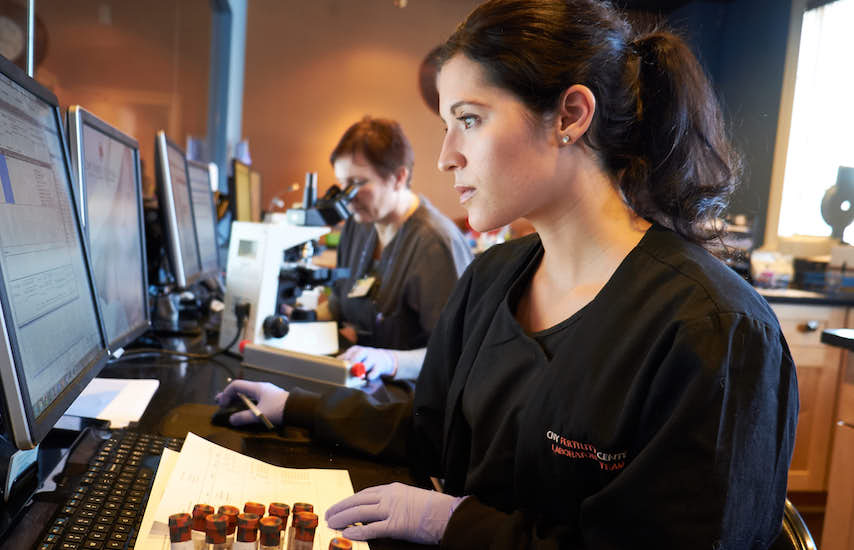Female Fertility Testing

People often want to know “what sort of fertility testing and evaluations should I have performed so I can know what is going on and receive the best care?” Sometimes, people may even be a little scared of their fertility testing. Know, however, that we are here to make sure your entire experience including your testing goes as smoothly as possible.
Basic Female Fertility Testing
Below is a list of the basic fertility testing that is usually completed before the start of your fertility treatment.
- Preconception blood work (yearly)
- Antibody Screen
- AMH
- Blood Type and Rh
- CBC (complete blood count)
- CMP (complete metabolic panel)
- Cystic Fibrosis
- Fragile X
- Free T3
- Free T4
- Hepatitis B Surface Antigen
- Hepatitis C Virus Antibody
- HIV-1/HIV-2 Antibody
- Prolactin
- Rubella IgG
- RPR
- SMA
- Thyroid Stimulating Hormone (TSH)
- Testosterone
- Varicella
- Vitamin D
Expanded Carrier Genetic Screening
- Imaging:
- Hysterosalpingogram (HSG) – an X-ray procedure that uses a contrast dye to evaluate the patency and health of a woman’s fallopian tubes. Commonly referred to as a dye test.
- Saline Sonohysterogram (SHG) – A transvaginal ultrasound with the slow introduction of saline solution into the uterus to evaluate uterine abnormalities and the endometrial (uterine) lining.
Baseline and Cycle Monitoring
This testing is done prior to starting any treatment cycle to get a “baseline” of all your hormonal levels. Some tests are continued throughout the treatment cycle during monitoring appointments.
- Estradiol: Performed at baseline and in cycle monitoring appointments.
- Progesterone: Performed at baseline and in cycle monitoring appointments.
- LH (luteinizing hormone): This test is performed during the baseline and every monitoring appointment.
- FSH (follicle-stimulating hormone): Performed at baseline appointments.
- HCG (pregnancy hormone): Performed at baseline appointments.
- TSH (thyroid): Performed at baseline appointments.
- AMH: Performed at baseline appointments.
- Free T3: Performed at baseline appointments.
- Free T4: Performed at baseline appointments.
- Physical exam and pelvic transvaginal ultrasound: Performed at baseline and in cycle monitoring appointments.
Additional Testing
This infertility testing can be done at any time, but is usually conducted after noteworthy signs of endometriosis or when it is determined to be helpful by a physician
- Autoimmune testing for recurrent pregnancy loss or continuous IVF implantation failure may include: Lupus, NKC (natural killer cells), Karyotype (male and female), ANA (antinuclear antibody)
- Laparoscopy + Hysteroscopy –A surgical procedure done under anesthesia (general) to evaluate the uterus for polyps, fibroids, endometriosis, and adhesions.

